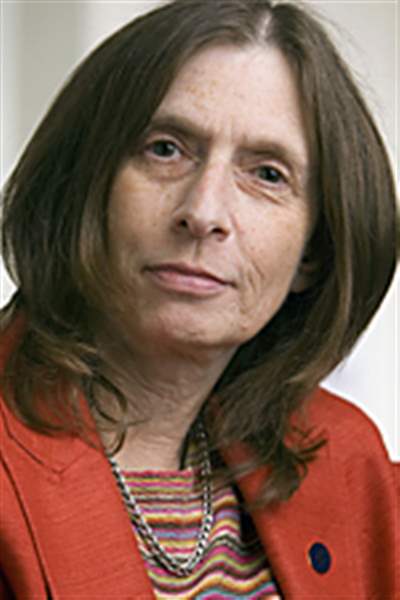
Aging world population puts focus on hunger
Speaker: Elderly at risk for rise in poor health
4/30/2013
Enid Borden
Hunger, especially among senior citizens, is a growing problem of the future, according to the keynote speaker at the “annual legislative breakfast” Monday sponsored by the Area Office on Aging.
“The global issue of an aging population is truly beginning to look like a worldwide tsunami. Presently 900 million people are over the age of 60. By 2050 that number will reach 2.4 billion people,” said Enid Borden, founder, president, and chief executive officer of the National Foundation to End Senior Hunger.

Enid Borden
And “the number of older people in poor health are almost certain to rise,” Ms. Borden said. The foundation commissioned a study that found that 5 million seniors in the United States were facing the threat of hunger in 2005, or 11.5 percent of the population, and that by 2010 those numbers had increased to 8.3 million, or more than 14 percent of the population.
“The research tells us that seniors living in the South and Southwest, those who are racial or ethnic minorities, those who are lower income, those who are the young-old — 60 to 69 — are most likely to be threatened by hunger,” she said.
She challenged her approximately 175 listeners at Parkway Place in Maumee to make Lucas County a pilot and model for a new program the group is founding called Communities United Against Senior Hunger.
“Let’s start here, find some model programs here in Toledo. Let’s quash senior hunger right here in Toledo,” Ms. Borden said.
“Hunger is an unacceptable phenomenon. It is a disease. It is a disease for which we have a cure today,” Ms. Borden added. “I’m sorry to say that I don’t think enough has been done. I think we can do so much more.”
Mayor Mike Bell vowed that the city would accept the challenge, identifying food as a community need to be addressed along with water and air as three legs of a stool.
“We will recommit to the third leg, which is food, and make sure nobody goes hungry,” Mr. Bell said.
U.S. Rep. Marcy Kaptur (D., Toledo) advocated that area organizations that maintain property — such as the city of Toledo and the Toledo Zoo — convert some of the property they mow into agriculture for crops that can be given away. She called for the coastline of Lake Erie to become known as “the edible coast.”
The AOA event was co-sponsored by ProMedica, the Northwest Ohio Gerontological Association, the University of Toledo Medical Center, which is the former Medical College of Ohio, and Mercy. There were also 16 exhibitors.
Billie Johnson, president and chief executive officer of the Area Office on Aging of Northwest Ohio Inc., estimated there are 12,000 people experiencing “food insecurity” in her 10-county region.
Guests were shown a 10-minute video featuring two elderly local women discussing how they get by on a small amount of food daily, and a Toledo man who is an immigrant from the Dominican Republic who gets no benefits, according to his translator, and sometimes chooses to spend what money he gets on medication rather than food.
The office on aging is funded by the Ohio Department of Aging, a Lucas County senior services levy, donations, and state and federal programs.
Guests at the breakfast included state Reps. Barbara Sears (R., Monclova Township), Tim Brown (R., Bowling Green), and Tony Burkley (R., Payne); state Sens. Randy Gardner (R, Bowling Green) and Edna Brown (D., Toledo), and other regional local officials. Also on hand, in addition to Mayor Bell, were two Democratic rivals for mayor, Lucas County Auditor Anita Lopez and Toledo City Councilman Joe McNamara.
Contact Tom Troy at: tomtroy@theblade.com or 419-724-6058.